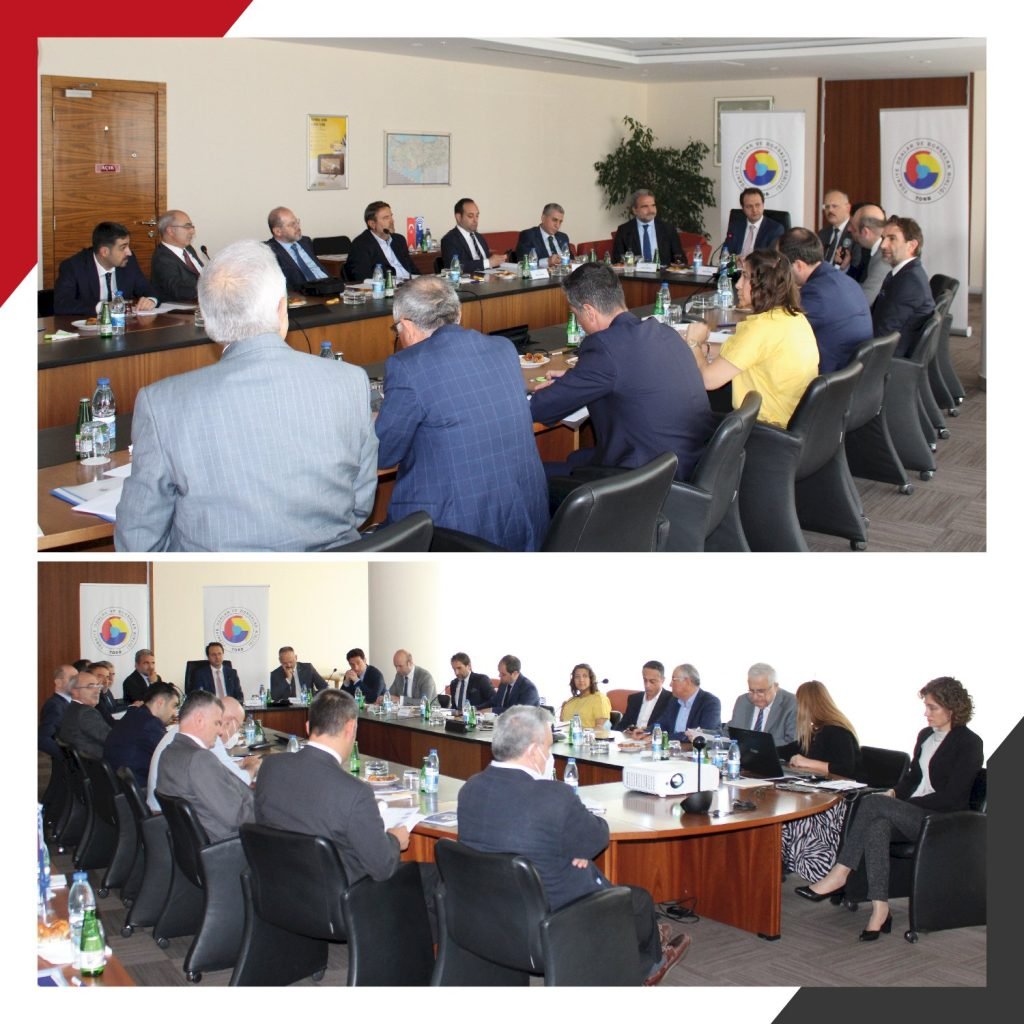Chairperson of the Board of Directors of TÜRKÇİMENTO, Fatih Yücelik took the floor during Cement and Cement Products Sector Assembly Meeting held by Union of Chambers and Commodity Exchanges of Turkey (TOBB) and pointed out that more investments need to be made at optimal cost and high efficiency in the cement sector and said that they are striving to increase the use of alternative fuels and to mainstream the use of renewable energy in the sector.
Fatih Yücelik, Chairperson of the Board of Directors of TÜRKÇİMENTO, the umbrella association of the cement sector, pointed out during TOBB Assembly Meeting held on June 30, the problems of the sector experienced in the course of the occurrences in the Turkey and the world. Explaining occurrences of the last 3 months, Fatih Yücelik stated that problems have emerged in coal supply especially in the cement sector following the crisis between Russia and Ukraine and said: “Russia is ranking one in the supply of coal to the cement industry. In 2021, our country was importing coal from Russia with an approximate cost of 1.5 billion dollars. On the other hand, our sector imported approximately 5 million tons of coal in 2021. Recently, no problems have occurred in Russia’s Black Sea ports for a certain period of time. It was also reported that the problems on the Baltic side have been resolved and loading operations have started. It can be said that the crisis has been overcome in general terms although discrete problems still exist. As, we industrialists went had difficult times due to natural gas shortages and power outages as well as this crisis. Being under influence of both crises, increases in energy costs caused further pressure on us. In May 2022, electricity increased by 181%, petcoke by 299%, imported coal by 609% and domestic lignite by 208% compared to May last year. I would like to point out that these increases are challenging for industrialists like us as 80% of our costs are energy-based.”
MORE INVESTMENTS HAVE TO BE MADE AT OPTIMAL COST AND HIGH EFFICIENCY
Pointing out that all these occurrences have made it necessary to make more investments with optimal cost and high efficiency to meet domestic consumption, Fatih Yücelik added to his words:
“Both the roadmap and regulations regarding the European Green Deal and the commitments under the Paris Climate Agreement obliged our sector to increase the use of alternative fuels and make renewable energy investments. Additionally, through renewable energy investments, it will be made possible to minimize the need for investment in electricity transmission lines, to improve energy quality and to minimize energy losses as consumption occurs at the point of generation. However, there is hesitation about the investments planned to be made in our sector, as well as uncertainties in feasibility calculations as we face with certain obstacles related to legislation . As the cement industry, we have commissioned 24.5 MW of installed capacity in renewable energy for self-consumption despite all of these circumstances. Our total power rating at the feasibility stage is 211 MW.” “
Stating that they consider the planning of a sustainability transformation program by the producers as the first step of strategic practices in low-carbon production, Fatih Yücelik added, “First of all, determining the vision and framework targets for carbon reduction on a company basis for the years 2030 and 2050 is of great importance. Another goal of our sector is to increase the amount of waste containing biomass with the initiative to increase the use of alternative fuels. However, it can be said that new technologies mean higher costs for every ton of carbon to be reduced. it is obvious that we need national and international technology transfer and financing support in this respect just like in the EU.”
Yücelik stated that the cement sector continues to contribute to the determination of Turkey’s 2053 net zero emission target and green development policies and added, “We are striving to develop new technologies in cement production with practices such as increasing the use of waste-derived fuels including biomass, increasing the use of renewable energy sources and developing incentive mechanisms to ensure sustainability and to minimize emissions.”


